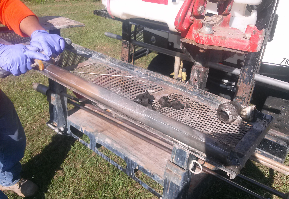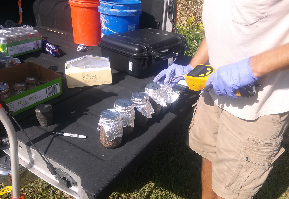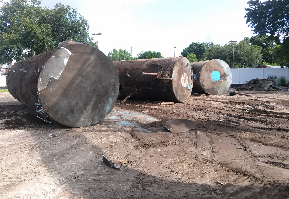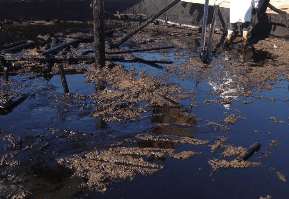Tank Closures / Contamination Assessments / Site Characterizations
Changing the face of environmental consulting.
Driven by our people. Proven by your success.
Tank Closures / Contamination Assessments / Site Characterizations
EAC's environmental professionals have performed hundreds of tank closures and are highly trained, and qualified to perform Underground Storage Tank Closures and conduct Contamination Assessments (CA) for petroleum handling facilities. EAC provides on-site support and management for the proper closure (both by removal and in-place) of underground storage tanks (UST). EAC manages the process from end to end including obtaining all necessary permits, preparing health and safety plans, providing oversight for disposal of residual hydrocarbons, excavating / stockpiling of overburden soils, proper disposal of the USTs, sampling of excavated and tank pit soils for analysis by third party laboratories, restoring project sites to existing grade and preparing closure reports for submission to the appropriate state and federal regulatory authorities.
EAC has investigated a broad range of contaminated sites, such as petroleum spills involving underground storage tanks, industrial discharges to underground injection wells, and hazardous waste spills from chemical storage. By using state-of-the-art field equipment and State-certified laboratories to test various media, we accurately characterize subsurface soil, sediment, surface waters, groundwater, soil vapor intrusion, and air quality. By conducting site research, testing and performing due diligence work on site, EAC engineers are able to determine what types of contaminants could potentially be found there. When available, details about the history and previous uses of the site are also factored into the analysis. Lastly, EAC’s team of engineers and scientists collaborate to identify, verify, prioritize and address the most serious contamination issues associated with the site. The team then actively engages with local officials and other stakeholders to determine the best course of action moving forward. Once the extent of contamination is defined, our experienced project managers can design an appropriate and cost effective remediation plan that works right the first time. Our multidisciplinary team has investigated thousands of sites throughout the Southeast, ranging from small corner gas stations and dry cleaners, to large industrial properties and bulk fueling facilities.

We are pleased to be able to offer our services under GSA Multiple Award Schedule Contract #GS-10F-181BA. NAICS Codes: #541330 - Engineering Services; #541620 - Environmental Consulting Services and #562910 - Remediation Services.
Navigation
Services
Office Locations
Deerfield Beach, FL
Charlotte, NC
Atlanta, GA
Tallahassee, FL
Sarasota, FL





